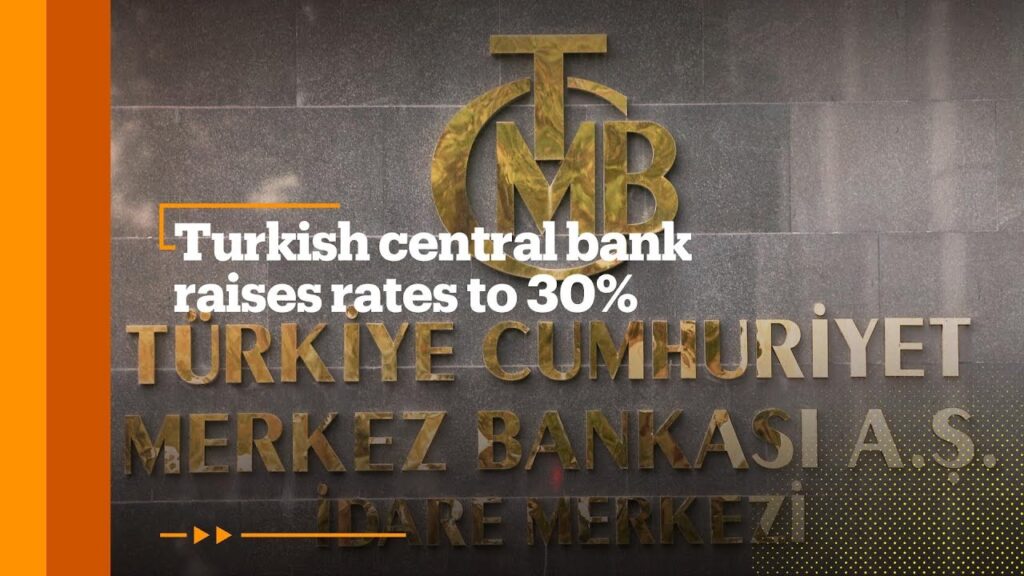Turkey’s Central Bank has Raised Interest Rates to 30%

The crypto market rallied in the 24 hours leading up to the start of October, which is typically a Turkey’s Central Bank Takes Drastic Measures to Tackle Inflation
In a bold move to combat rampant inflation, Turkey’s Central Bank has raised its key interest rate to a staggering 30%, marking a substantial increase of 500 basis points from the previous rate of 25%. This decisive action comes as Turkey grapples with double-digit inflation, and it signifies a significant departure from the previous government’s loose monetary policy.
Market Reaction and Currency Impact
The Turkish lira experienced a slight dip, weakening to 27.06 against the US dollar following the announcement. The greenback gained 0.3% against the local currency, illustrating the market’s reaction to the news.
A Shift from Loose Monetary Policy
This latest interest rate hike is part of a series of measures aimed at stabilizing Turkey’s economy, which has suffered from skyrocketing inflation and a severely weakened currency. Over the past five years, the lira has lost a staggering 78% of its value against the US dollar, and year-to-date, it has depreciated by 30%.
A Change in Economic Policy
The shift in policy began earlier this year when Turkey raised its key interest rate for the first time in over two years. President Recep Tayyip Erdogan appointed policymakers who pledged to adhere to economic orthodoxy, a traditional belief that raising interest rates is essential to curb inflation. Erdogan, who has openly criticized interest rates in the past, dubbed them “the mother of all evil” and advocated for lowering rates instead.
Inflation Challenges and Central Bank Response
As a result, Turkey progressively reduced its policy rate from 19% in late 2021 to 8.5% by March of the following year. This move coincided with a surge in inflation, which breached 80% in late 2022 before moderating to just under 40% in June. Recognizing the urgency of the situation, the Central Bank embarked on a series of rate hikes.
Setting Ambitious Inflation Targets
In July, the Central Bank declared its objective to bring inflation down to 5% in the medium term—an ambitious goal given that Turkey’s annual inflation surged to nearly 59% in August. The latest forecasts from Ankara anticipate annual inflation reaching 65% by the end of 2023, a stark increase from the previous year’s projection of 24.9%.
Positive Response from Analysts
Economic analysts have generally responded positively to the Central Bank’s recent interest rate hike. Liam Peach, a senior emerging markets economist at Capital Economics, lauded the move as a demonstration of policymakers’ commitment to addressing the inflation crisis. Peach noted that the Central Bank’s actions have maintained investor confidence and kept Turkey’s sovereign dollar bond spreads at multi-year lows.
Continued Challenges Ahead
In August, the Central Bank surprised the markets with a substantial rate hike of 750 basis points, from 17% to 25%. The recent decision indicates a continuation of this tightening policy. According to Capital Economics, further tightening is still necessary, with expectations that rates will rise to at least 35% by year-end.
The Complex Path Forward
Ash emphasized the need for a comprehensive approach, incorporating fiscal tightening, macro-prudential measures, and rate hikes to slow economic growth and bring down inflation. However, he acknowledged that the path ahead would be arduous, reflecting the complex nature of the challenge facing Turkey’s economy.




